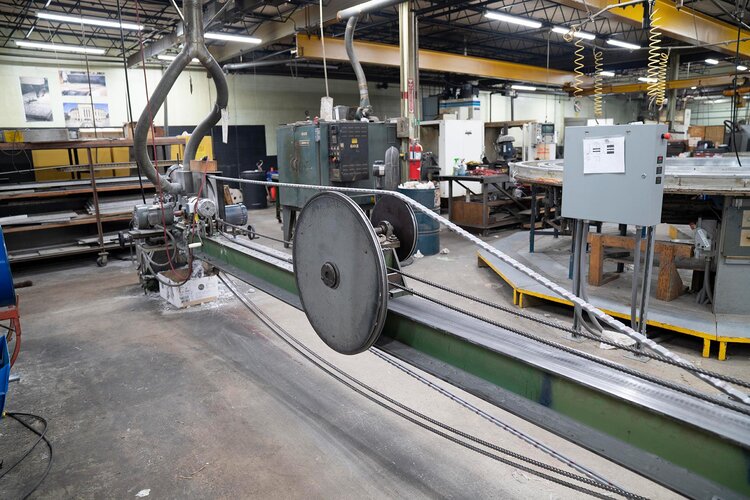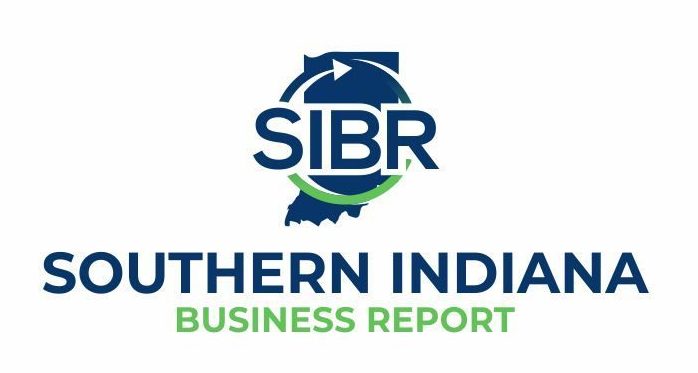Carol Johnson, Southern Indiana Business Report
BEDFORD – If you own a business that has hit a plateau or is ready to take on new customers, you might hire a consultant or strategist to devise a growth plan. But that’s not always affordable for a small business.
Economic gardening can help manufacturing businesses tap into new markets by providing market research and other tools to accelerate revenues and foster job growth.
Businesses in a community are similar to a garden, they must be tended regularly, so they continue to produce.
Economic gardening takes that concept and applies it to the needs of companies.
The Purdue Center for Regional Development administers the program in Indiana. Companies that apply and are accepted work with a team of professionals who devise strategies specific to a company’s needs.
The PCRD works with local economic development organizations to identify businesses ripe for economic gardening. Julie Rigrish is the regional director of PCRD and recently worked with several businesses in the Radius Indiana region that completed the economic gardening program.
WF Meyers finds new customers
WF Meyers, a Bedford company with more than 130 years of experience in diamond tooling and machinery for the stone industry, participated in the program in 2021.
Alex Barnes, WF Meyers president, said the program came along at a pivotal time in the company.
In the spring of 2020, WF Meyers went through a restructuring of its business model, Barnes said.
“Anything that was crowded we got out of. We cut some product lines, had a layoff and started to rebuild from there,” he said.
With a slimmed down portfolio of products, the retooling of the company began. Soon after, Barnes learned about economic gardening from Shance Sizemore, executive director of the Lawrence County Economic Growth Council.
WF Meyers was accepted, one of several in the Radius Indiana region to participate.

Barnes had a couple of goals – to bring the WF Meyers portfolio of products to more customers and to tap into available research to do some target marketing of the company’s niche products.
“We got a lot of research out of it,” Barnes said. “The market research they did was fantastic. What we sell, diamond tools for the stone industry, and what we’ve found in the past is that our tools fill a specific niche in a small industry. We know the industry and the industry knows us. So as far as expanding our sales effort, there wasn’t much to do there.”
Where WF Meyers did see growth was in sales of industrial air bags.
“We have seen a lot of growth in selling those,” he said.
Typically, an economic gardening program works with stage 2 companies, which are companies that have survived the start-up stage and are ready to broaden their reach and explore new markets that will lead to long-term growth.
As a fifth-generation company that began in 1888 in Long Island City, New York, and has been in Bedford since 1911, WF Meyers didn’t fit that description, but Rigrish said many established companies can benefit from the program. For instance, the program provides market analysis to identify competitors and help with optimizing their websites. For companies that don’t have someone on staff to do market research, economic gardening is a game changer.
The business identifies needs where it wants help and the PCRD team gets to work. Rigrish said examples include identifying competitors, finding new customers, assessing market trends or helping with a digital marketing campaign.
“This program makes it affordable for a smaller business and if it’s financed by the LEDO or another entity, it’s a win-win because it keeps the business in the community,” Rigrish said.
Measuring growth
From early 2020, when Radius Indiana partnered with PCRD, seven companies in the eight-county region completed the program over a span of 18 months. Participating businesses were from Greene, Daviess, Dubois, Lawrence and Orange counties.
Purdue’s team of specialists follows up with the companies annually for three years to measure their growth.
Rigrish said the team continues to collect data from this group of businesses. Looking at the program as a whole, Rigrish said companies that have completed the program have seen their revenue increase 24.6% and full time employment on average, increase 8%.
Emily Del Real, an engagement specialist with PCRD, said the program attracts many types of businesses.
“Companies are always evolving and have to continue to grow,” she said. “ We work with established companies and newer ones. And sometimes they will go through the program more than once.”
Purdue’s staff works with each company individually. The program can be finished in six weeks, but most companies complete it in eight weeks.
Economic gardening has been around since the 1980s. Purdue launched its program in 2014 modeling it after the national program.
“It’s gaining more acceptance over time,” Rigrish said.
Barnes said WF Meyers was due for a reinvention. His father Ken led the business for 30 years before he took over and with the changes brought on by the pandemic, it was a good time to assess where the business was going.
“The economic gardening program was very helpful and I do think we’ve found a couple areas to pursue for that re-invention,” he said. “Economic gardening was like having a new member on the team to see what’s going on in the wider industry. It was a good resource for us and I would recommend it.”
WF Meyers has continued to explore other opportunities. In November, the business was awarded an advanced manufacturing grant from Conexus Indiana. WF Meyers used the award to invest in new equipment.
What’s required of participants?
Rigrish said the program is a commitment of six to eight weeks in most cases, with a firm’s CEO required to dedicate eight to 12 hours of total time working with the consultants. All meetings are held virtually or by phone.
The cost of the program is $4,200, however she said scholarships and grant funding are often available from local partners, such as Radius Indiana.
Criteria for companies to be eligible.
- For-profit, privately held company
- Located in Indiana
- Employs 10-99 employees
- Sales of $1M – $50M
- Staffed for growth
- Committed to implementation of strategy
For more information, contact Rigrish: jrigrish@purdue.edu or 812-590-9189.



